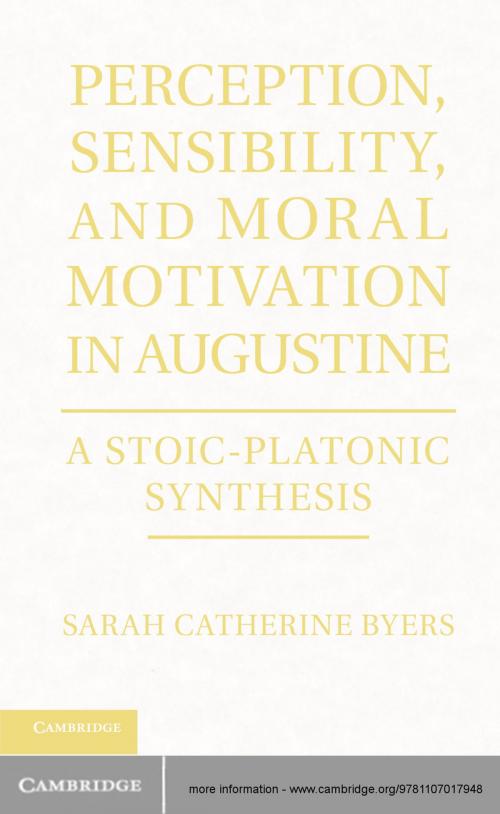Perception, Sensibility, and Moral Motivation in Augustine
A Stoic-Platonic Synthesis
Nonfiction, Religion & Spirituality, Philosophy, Ancient| Author: | Sarah Catherine Byers | ISBN: | 9781139853965 |
| Publisher: | Cambridge University Press | Publication: | November 12, 2012 |
| Imprint: | Cambridge University Press | Language: | English |
| Author: | Sarah Catherine Byers |
| ISBN: | 9781139853965 |
| Publisher: | Cambridge University Press |
| Publication: | November 12, 2012 |
| Imprint: | Cambridge University Press |
| Language: | English |
This book argues that Augustine assimilated the Stoic theory of perception into his theories of motivation, affectivity, therapy for the passions and moral progress. Using his sermons to elucidate his treatises, Sarah Catherine Byers demonstrates how Augustine enriched Stoic cognitivism with Platonism to develop a fuller and coherent theory of action. That theory underlies his account of moral development, including his account of the mind's reception of grace. By analyzing Augustine's engagement with Cicero, Seneca, Plotinus, Ambrose, Jerome, Origen and Philo of Alexandria, Byers sheds new light on a major thinker of the early Christian world whose work is of critical importance for understanding key and recurring themes in Western philosophy.
This book argues that Augustine assimilated the Stoic theory of perception into his theories of motivation, affectivity, therapy for the passions and moral progress. Using his sermons to elucidate his treatises, Sarah Catherine Byers demonstrates how Augustine enriched Stoic cognitivism with Platonism to develop a fuller and coherent theory of action. That theory underlies his account of moral development, including his account of the mind's reception of grace. By analyzing Augustine's engagement with Cicero, Seneca, Plotinus, Ambrose, Jerome, Origen and Philo of Alexandria, Byers sheds new light on a major thinker of the early Christian world whose work is of critical importance for understanding key and recurring themes in Western philosophy.















